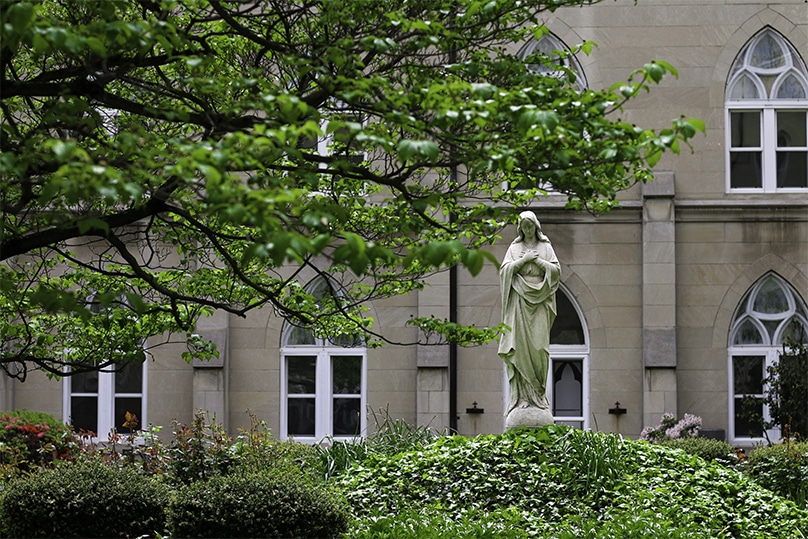
Question: Dear Father, I remember hearing once about an argument for living as if there were life after death called Pascal’s wager. Can you enlighten me as to exactly what this argument is, as I have a friend who doesn’t believe in life after death?
The argument, as you say, is called Pascal’s wager and it comes from Blaise Pascal (1623-1662), the famous French mathematician, physicist, inventor and philosopher. The wager comes in his posthumously published Pensées, or Thoughts, in Part III, Section 233. It is intended to show that it is better to wager that there is a God and therefore life after death, and to live one’s life in accordance with that belief than to bet that there is no God and no life after death. A summary of the wager goes like this.
Either there is a God or there is not. Pascal says that reason cannot decide between the two. That is, we cannot know by reason alone whether there is a God. It should be said, contrary to this statement of Pascal, that human reason can show that there is a God, starting with arguments presented by Aristotle and St Thomas Aquinas and, more recently, with arguments from the cosmos. But for those who are not certain, Pascal’s argument continues.
We can consider human life then like a game, in which at the end there is a God and life after death or there is not. It is like tossing a coin, which will come up heads or tails. Heads means there is a God and you live happily with him for ever in indescribable bliss. Tails means there is no God and your life comes to an end. You must wager; you must decide how you are going to live. It is not optional.
In fact, we could add, people do wager. Many believe in God and try to live in accordance with his commandments, telling him they are sorry when they fail and starting over. Others, relatively few, bet there is no God and don’t worry about God’s laws, although they try not to get caught by the laws of men. Some of these, nonetheless, “hedge their bets” and endeavour to live a decent life “just in case”.
Let us first consider the consequences if we bet that there is a God and life after death. If we win and there is a God, we gain everything. We bet the finite life we live on earth and we gain the infinite, union with God in heaven for all eternity. If we lose and there is no God, we lose nothing. We simply cease to exist. So betting on God offers the chance to gain everything and lose nothing.
Alternatively, we can bet there is no God and live our life accordingly: in self-indulgence, dishonesty, pride, laziness, etc. If we win and there is no God we gain nothing, we simply cease to exist. But if we lose and there is a God, we miss out on the infinite reward of eternal life with him in heaven. And of course, although Pascal doesn’t say it, this implies suffering for all eternity in hell.
It is clear from this argument that it would be foolish indeed to bet that there is no God. There is nothing to gain and everything to lose, whereas betting that there is a God promises everything to gain and nothing to lose.
But there is more to it than what awaits us after death. Pascal does not mention this but it is important to consider that those who live a good life here on earth find great happiness already in this life. They will fail often, as we all do, but the very effort to be kind, generous, honest, hard working, loyal, brings its own reward. The psalm says it all: “Blessed are those whose ways are blameless, who walk in the law of the Lord” (Ps 119:1).
Conversely, those who disregard God’s law and the good of others may make a lot of money and have many possessions but they do not have the peace of mind, the joy of life that the others do.
As C S Lewis says in his book The Great Divorce, which is an allegory on heaven and hell, those who go to heaven begin their heaven on earth and those who go to hell begin their hell on earth.
So independently of what awaits us in the next life, already in this life we reap the rewards of betting that there is a God and life after death and living accordingly. And we suffer in this life, as well as in the next, if we bet there is no God.
It is clear which is the better wager.
